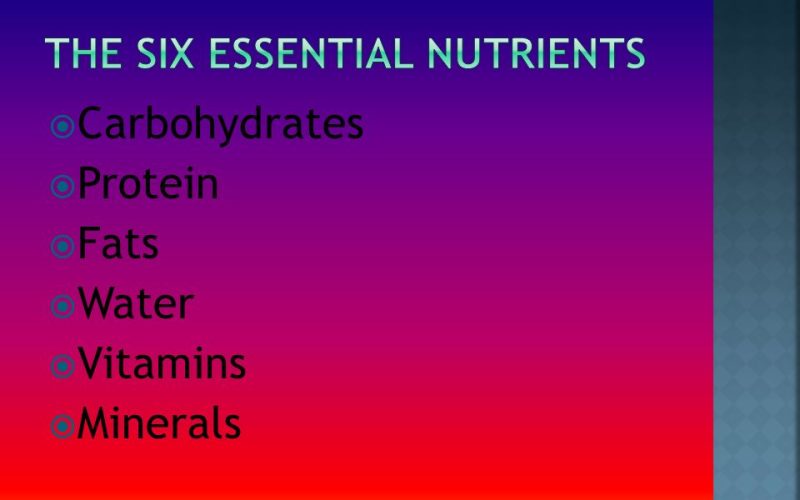Introduction:
Understanding the intricacies of nutrition is fundamental to promoting optimal health. The human body relies on a balanced intake of 6 Essential Nutrients obtained from various dietary sources. This comprehensive guide delves into the categories, functions, food sources, and recommendations for these nutrients.
Essential Nutrient Categories:
Micronutrients:
Micronutrients, vital in small quantities, encompass vitamins and minerals. These play a pivotal role in supporting overall health, and deficiencies can lead to a spectrum of health issues.
Macronutrients:
On the broader scale, macronutrients, required in larger amounts, consist of water, protein, carbohydrates, and fats. Each contributes uniquely to the body’s physiological functions.
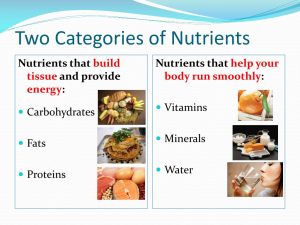
Vitamins:
Vitamins, as micronutrients, offer a diverse array of health benefits. These are further classified into fat-soluble and water-soluble groups.
Fat-Soluble Vitamins:
- Vitamin A
- Vitamin D
- Vitamin E
- Vitamin K
Water-Soluble Vitamins:
- Vitamin B-1 (thiamine)
- Vitamin B-12 (cyanocobalamin)
- Vitamin B-6
- Vitamin B-2 (riboflavin)
- Vitamin B-5 (pantothenic acid)
- Vitamin B-3 (niacin)
- Vitamin B-9 (folate, folic acid)
- Vitamin B-7 (biotin)
- Vitamin C
Food Sources: A diet rich in vegetables, fruits, and lean proteins ensures an ample supply of vitamins. However, supplements may be necessary for individuals with dietary limitations.
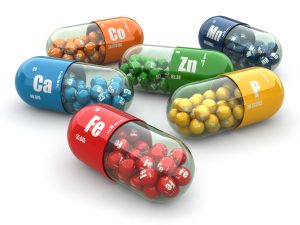
Minerals:
Another critical micronutrient category comprises major and trace minerals, both essential for optimal health.
Major Minerals:
- Magnesium
- Calcium
- Phosphorus
- Sulfur
- Sodium
- Potassium
- Chloride
Trace Minerals:
- Iron
- Selenium
- Zinc
- Manganese
- Chromium
- Copper
- Iodine
- Fluoride
- Molybdenum
Food Sources: A balanced diet including red meats, seafood, dairy, vegetables, and nuts ensures an adequate intake of essential minerals.

Protein:
As a macronutrient, protein is indispensable for various bodily functions, including growth, development, and immune system support.
Food Sources: Red meats, poultry, fish, beans, eggs, dairy, soy, and certain grains are excellent sources of protein, catering to diverse dietary preferences.
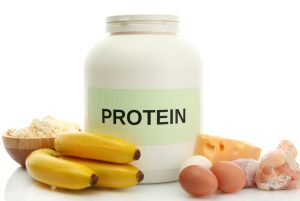
Fats:
Contrary to misconceptions, certain fats are essential for optimal health, contributing to various physiological functions.
Functions of Healthful Fats:
- Cell growth
- Blood clotting
- Building new cells
- Reducing the risk of heart disease and type 2 diabetes
- Muscle movement
- Brain functioning
- Mineral and vitamin absorption
- Hormone production
- Immune function
Food Sources: Nuts, fish, vegetable oils, and seeds are rich in healthful fats, supporting a well-rounded diet.

Carbohydrates:
Essential for providing energy to cells and tissues, carbohydrates are divided into simple and complex types.
Complex Carbohydrates Sources:
- Quinoa
- Brown rice
- Vegetables
- Whole grain pasta, bread, and baked goods
- Oatmeal
- Fruits
- Barley
Recommendation: While complex carbohydrates are crucial for various bodily functions, limiting the intake of simple carbohydrates and processed products with added sugar is advisable.
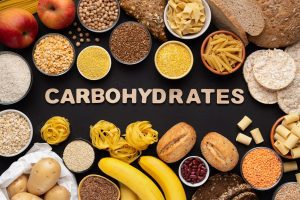
Water:
Undoubtedly the most critical essential nutrient, water is indispensable for numerous bodily functions.
Functions of Water:
- Flushing toxins
- Shock absorption
- Nutrient transport
- Constipation prevention
- Lubrication
- Hydration

Best Sources: Optimal hydration is best achieved through natural, unsweetened water from tap or bottled sources. Additionally, fruits with high water content can contribute to overall water intake.
Caution: Sugary drinks, including sweetened teas, coffees, soda, lemonade, and fruit juices, should be avoided for hydration.
In summary, a comprehensive understanding of and adherence to a well-balanced intake of these six essential nutrients are pivotal in promoting and sustaining overall health and well-being.






